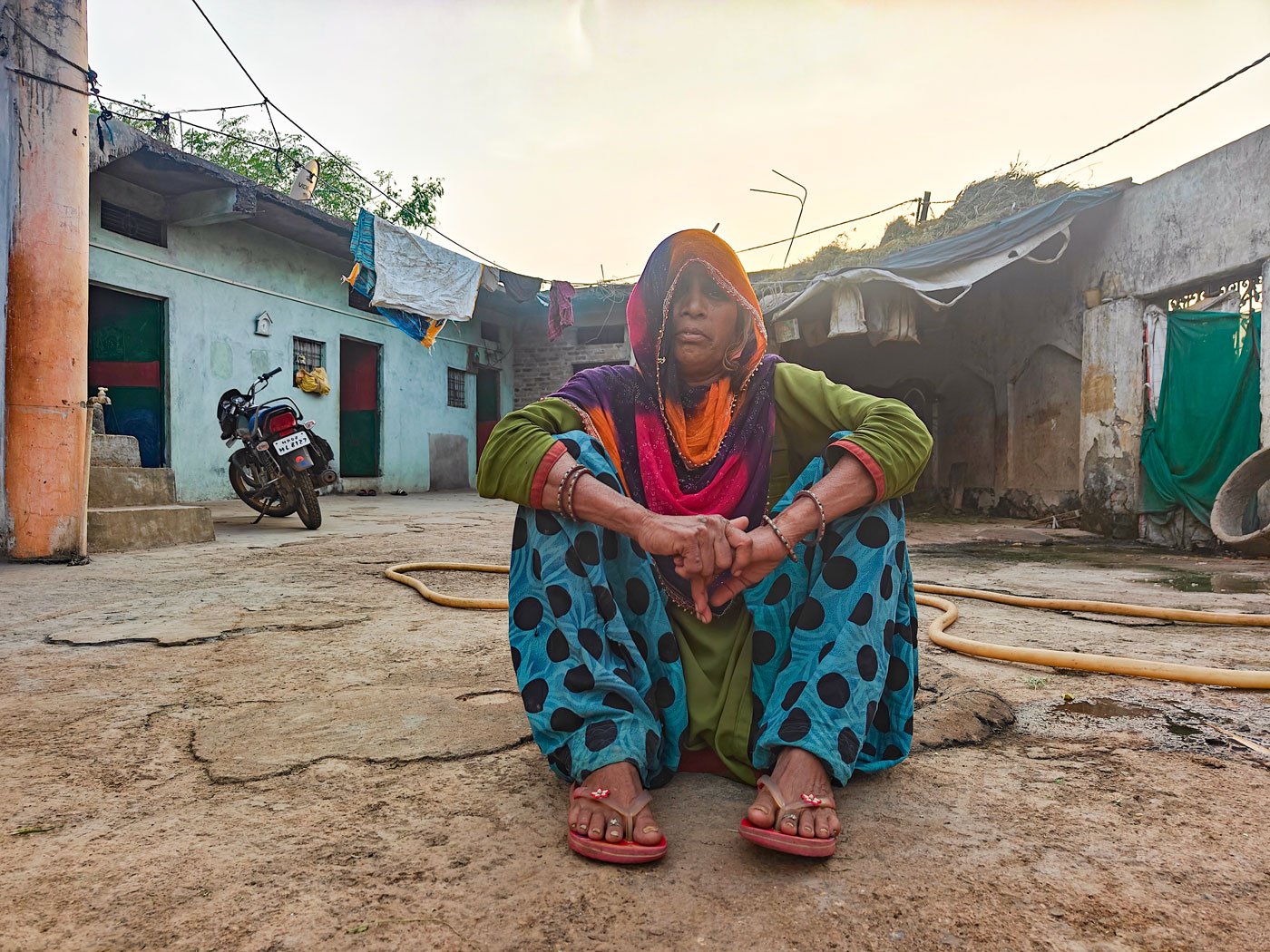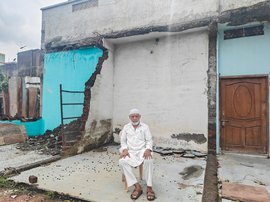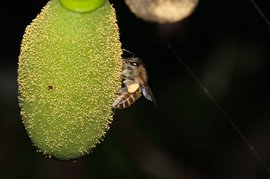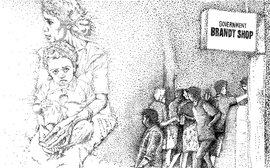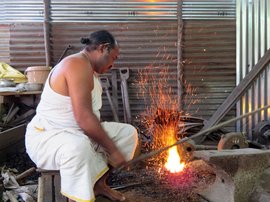When Munawwar Khan, 65, reached the police station he could hear his son’s desperate wails coming from inside. About 15 minutes later the cries fell silent. The father of Israel Khan was hopeful, thinking the police had stopped beating his son.
Earlier that day, Israel had left Bhopal after participating in a religious congregation. He was returning home to Guna – about 200 kilometres away where he worked as a daily wage labourer on construction sites.
He reached Guna that evening (November 21, 2022), but didn’t get home. Around 8 p.m. a couple of kms from his home in Gokul Singh Ka Chak, a basti (settlement), four police officers stopped the autorickshaw Israel was travelling in and took him away.
In fact, Israel was on a call with his mother-in-law when he was detained, says Bano, 32, his elder sister. “That is how we got to know that he is in police custody.”
He was taken to the nearby Kushmuda police station. It was here that his father Munawwar heard him screaming in pain as police officers mercilessly beat him up.
About 45 minutes later, Munawwar would realise that his son’s desperate cries had fallen silent not because the police stopped their assault, but because he had been beaten to death. His post mortem indicated that he died of cardiorespiratory failure and a head injury.
Later media reports would quote the Madhya Pradesh police as saying that the 30-year-old Muslim labourer was detained as he was part of a group that tried to save a gambler and got into a confrontation with the police.
But his family is not buying it: “He was picked up because he was a Muslim,” says Israel's mother, Munni Bai.
The fact that Israel died in police custody is not disputed. How he died is.

Munni Bai lost her son Israel when he was taken into police custody and beaten up; a few hours later he died due to the injuries. ' He was picked up because he was a Muslim', she says, sitting in their home in Guna district of Madhya Pradesh
Rakesh Sagar, superintendent of police, Guna, says Israel arrived injured at the police station after falling down on a railway track at Ashok Nagar – about 40 kms from Guna – and died in police custody. “The four concerned constables are currently suspended,” he says. “There’s a disciplinary action going on against them. But it has emerged that they didn’t do anything. Our prosecution department will decide further steps.”
On the fatal night, the police at Kushmuda Police Station told Munawwar that Israel had been taken to the police station at Cantt. But after getting there, they informed him that Israel’s health had deteriorated and he was being taken to the district hospital. “We realised something was not okay,” says Bano, “When our father reached the hospital, Israel was dead. The bruises were all over his body. He had been mercilessly beaten to death.”
Israel’s mother, Munni Bai sits across their modest one-room house in the basti listening to the conversation, trying to hide her tears. Their home is one of three to four small concrete rooms that share two common toilets inside a gated compound.
Munni Bai enters the conversation with much effort. Every time she tries to speak, she breaks down. But she wants to make her point. “It has become easy to target Muslims these days,” she says. “The atmosphere is such that we are reduced to second-class citizens. We can be killed and nobody will bother to speak up.”
In July 2022, the union home ministry told the Lok Sabha that 4,484 custodial deaths had happened in India between April 2020 to March 2022 – that is more than six a day for two years.
Madhya Pradesh accounted for 364 of these custodial deaths with only Uttar Pradesh, Bihar and West Bengal reporting more.

Bano, Israels Khan's sister says his family is struggling as their main income from his daily wage work has ended with his death
“Most of the people that die in police custody belong to marginalised communities or minorities,” says Vishnu Sharma, an activist based in Guna. “They are struggling financially, and have no agency. It is criminal how ruthlessly we treat them.”
Israel’s daily wages brought home Rs. 350 a day and in a good month, he made about Rs. 4,000-5,000. The family lived on that income. He is survived by his wife, Reena, 30, three daughters aged 12, 7 and 6, and a year-old son. “The police should understand the consequences of their actions. They have destroyed an entire family for no reason,” says Bano.
When I visited the family in the last week of September 2023, Reena and the children were at her parents’ place on the outskirts of Guna city. “She keeps moving between here and there,” says Bano. “She has been through a lot. We try to be as supportive of her as possible. She can come and go as she pleases. This is also her home. That is also her home.”
Reena’s family is not well off and cannot support her and her family. Her daughters have been out of school ever since their father’s death. “We can’t pay for the school uniform, bags and notebooks anymore,” says their aunt, Bano. “The children are in depression, especially Mehek, who is 12 years old. She was a talkative one but now she barely speaks.”
India has been a signatory to UN Convention against torture since 1997. But the country has failed to legislate against it. In April 2010, the then Congress-led union government had tabled an anti-torture bill in the Lok Sabha but it never materialized into legislation. Custodial torture of undertrials remains a norm in India, and marginalised communities such as Muslims, Dalits and Adivasi are its worst sufferers.
Intaaz
Bai, Israel’s grandmother in front of their home in
Gokul Singh Ka Chak,
a
basti
in
Guna district
Take the case of Bisan, 35, a small Adivasi farmer and a labourer from the village of Khair Kundi in Khargone district who was picked up by the police in August 2021 and brutally tortured over suspicion that he stole Rs. 29,000.
Three days later, when Bisan, a Bhil Adivasi, was produced in front of the judicial magistrate, he was visibly in pain and couldn’t even stand straight without physical support, say activists who are fighting the case. Yet, he was remanded to police custody. The jail authorities refused to admit him because of his injuries.
Four hours later, he had to be rushed to the hospital, where he was pronounced dead on arrival. Post mortem report records the cause of death as septicaemic shock due to extensive infected wounds.
Bisan is survived by his wife and five kids – youngest of whom is seven years old.
An NGO working in the state – Jagrit Adivasi Dalit Sangathan (JADS) – has taken up Bisan’s case. A PIL has been filed in the High Court of Madhya Pradesh.
“You torture him over suspicion of Rs. 29,000 to the extent that he dies?” asks Madhuri Krishnaswamy, leader of JADS. “Bisan’s family has been under pressure to withdraw the case but we have decided to fight it on our own. The police have not followed the guidelines laid down by the NHRC.”
According to the guidelines stated by National Human Rights Commission (NHRC), “All reports including post-mortem, videograph and magisterial inquiry report must be sent within two months of the incident. In every case of custodial death, Magisterial Inquiry has also to be done as directed by the Commission and it should be completed as soon as possible but in such a way that within the two months’ deadline this report is also made available.”
When Israel died, the police were pressuring the family for a burial without handing them a post mortem report. It has been nearly a year since then but his family is still unaware of the Magisterial Inquiry result.

Munni Bai says, 'the atmosphere is such that we (Muslims) are reduced to second-class citizens. We can be killed and nobody will bother to speak up'
They have also not received any monetary help from the state. The District Collector rudely dismissed them when Israel’s family sought to meet him, says Bano. “Everybody has forgotten about us. We have also given up hope of getting justice.”
With the main breadwinner of the family gone, the old parents have had to chip in.
Munni Bai has taken up a job of milking the neighbour’s buffaloes. She brings in the livestock in the verandah of her small home and milks the animals one by one. At the end of it, she returns the livestock, along with the milk, to the employer, for which she gets Rs. 100 per day. “That’s all I can do at my age,” she says.
Munawwar is in his sixties and despite the fact that he is frail, weak and suffers from joint pains, he has had to go back to labour work. He starts panting at construction sites, which makes others around him concerned for his health. He doesn’t travel too far away from his basti , and looks for work within a five or 10 km radius so that his family can rush to help if there is an emergency.
The family has been
struggling to make ends meet, which makes it difficult for them to pursue the
case. “The lawyers ask for money,” says Bano. “We can’t feed ourselves. From
where will we pay the lawyer?
Yahan insaaf ke paise lagte
hai.
[Justice is expensive in India].”
